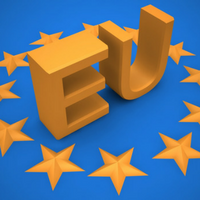Fiscal union and the Euro – a modern version of Helen and Cassandra?
| 28-02-2018 | treasuryXL |
 There are many reasons for the creation of the Euro – mainly linked to memories of senior politicians who had experienced the Second World War, together with the fall of the Iron Curtain. Countries that trade together, share institutions, and a common currency, are less likely to declare war on each other seems to be the thinking. Furthermore, statesmen explained that economic and monetary union would lead to greater prosperity, increased employment opportunities for citizens and a higher standard of living. Cohesion, convergence, increased wealth and peace were certainly attractive points. So why, after 19 years, have the countries not achieved more convergence?
There are many reasons for the creation of the Euro – mainly linked to memories of senior politicians who had experienced the Second World War, together with the fall of the Iron Curtain. Countries that trade together, share institutions, and a common currency, are less likely to declare war on each other seems to be the thinking. Furthermore, statesmen explained that economic and monetary union would lead to greater prosperity, increased employment opportunities for citizens and a higher standard of living. Cohesion, convergence, increased wealth and peace were certainly attractive points. So why, after 19 years, have the countries not achieved more convergence?
To truly obtain integration it was always evident that steps would have to be made towards fiscal union – monetary union was just the start. A fiscal system needs to be in place that ensures a form of stability – transferring funds from strong countries to weaker countries. Whilst the Euro has contributed to growth in trade between member states, and certainly citizens have been able to source and price goods and services without an exchange rate risk, it has fallen short on certain goals. Mobility within the labour market was never going to replicate that in America. The national boundaries might have gone, but the language and cultural borders are still present. Therefore, a shortage of labour in Poland, can never be met by an influx of Belgians and Spanish looking for work. Investment capital has certainly not moved as freely as anticipated – the idea that surplus funds from Northern Europe would flow freely to the South and allow them to strengthen their position in the marketplace has remained an idea.
As previously stated the expected convergence of different economies has not happened. In fact, it would appear that they have diverged. There is much information that can be found on the internet that explains how the countries in the South increased wages by a far greater factor than productivity after implementing the Euro. It appears that gaining wage parity with the Germans was more important than actually increasing productivity. These excess wages were invariably spent on well-designed, but expensive, German products resulting in trade deficits with the countries in the North.
Emmanuel Macron – the President of France – has vociferously stated that Europe has to be more politically integrated; have a common defence policy and armed forces; more regulation of business; and a transfer mechanism to transfer funds from rich to weaker countries – a fiscal union.
However, considering that the countries within the EU have actually diverged from each other on the basis of GDP, inflation, Government debt, unemployment etc. since the inception of the Euro, and even more so since the start of the financial crisis, there is an inherent danger in transferring funds.
The word transfer implies not only something going from A to B, but also from B to A. The disparity within the economies would mean that the transfer would only be going in one direction for a very long time in the foreseeable future. The political implication is profound – would people from countries that are considered rich accept a long term action that would see their wealth reallocated to weaker countries. Some supporters might say that this just a matter of semantics – however the consequences are far reaching and permanent.
Which brings us round to Cassandra – when recollecting stories from Greek mythology people have a good knowledge of the story of Helen of Troy. One of the minor characters, but a very important one, is Cassandra. She who received the gift of prophecy but was cursed never to be believed. She warned about the fall of Troy, the Greeks hiding with the Trojan horse and the war that would happen when Paris fell in love. No one listened to her. There are many politicians and economists who have previously tried to warn about the problems within the Eurozone. Some voiced their opinions even before the Euro existed – but their voices were also dismissed.
There have been more than 50 infringements by member states on the criteria of the Euro since its inception. No sanctions or punishment were ever handed out. To think that things will be different in the future is wishful thinking. In almost a decade since the financial crisis, there has been no structural solution to the inequalities within the Euro and their members. We are almost 10 years further and the differences are even greater and still not resolved. Further integration whilst not acknowledging and addressing the imbalances can only lead to further divergence.
If you want more information please feel free to contact us via email [email protected]









